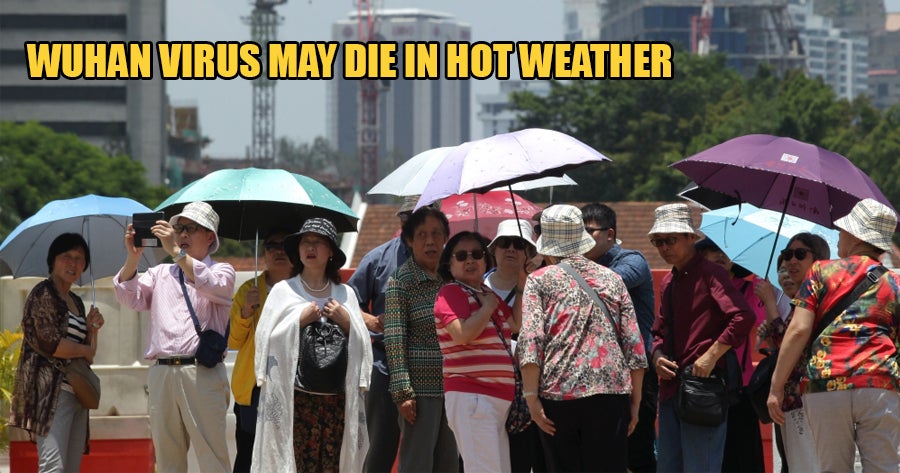Experts have predicted that the new coronavirus might disappear by May 2020.
This is due to several factors that could play a part in eliminating the virus that has infected over 28,000 people and taken the lives of over 500 as of today, 6th February 2020.
These numbers are higher than that of the Severe Acute Respiratory Syndrome (SARS) outbreak in 2003. However, while it has spread rapidly, it also has the chance of disappearing just as quickly.
In a piece for CNA, two experts in Singapore, Assistant Professor Jyoti Somani and Professor Paul Ananth Tambyah from the National University of Singapore’s Yong Loo Lin School of Medicine, shared their predictions.

Source: straits times
1. Climate and weather promote the spread of viruses
Experts say the seasonal pattern of the 2019-nCov virus is similar to that of influenza infection and SARS. When summer starts kicking in around May, temperatures in China will go up and the number of cases may fall sharply as a result.
This is because climate temperatures will cause the spread of viruses to cease.
Usually, flu season would start in December and peak in January or February in temperate climates. After that, cases will start to decrease.
Viruses in temperate countries is thought to be related to factors that affect infectiousness, such as the dryness of the air, ambient air temperature and possibly ultraviolet solar radiation.
This prediction could come true as SARS disappeared in the northern summer in 2003 when things got warm and has not reappeared significantly since.

Source: the star
2. People in close contact with other people in cold weather
Because the weather is cold, people tend to spend more time indoors, which makes them in close proximity to other people.
This makes them more susceptible to getting infected as they are in close contact with those who may or may not be already infected.
Viruses are spread through large droplets of saliva or phlegm and are spread farther when the air is cold and dry.
3. Viruses survive longer in cold weather
According to studies, “regular” coronavirus – one of the causes of the common cold – can survive on surfaces 30 times longer in places with a temperature of six degrees Celsius compared to those where the temperature is 20 degrees Celsius and humidity levels are high.
Scientists have also revealed that the SARS virus survived much longer in low temperatures and low humidity compared to high temperatures and humidity.
This might be why countries like Hong Kong and Singapore allowed the SARS virus to survive longer due to the “intensive use of air-conditioning” unlike warm and humid Southeast Asian countries.

Source: xin hua net
4. Modern technology
The technology and medicine of today has allowed researchers to develop fast and accurate tests that were not available during the initial weeks of SARS outbreak.
For the new coronavirus that originated from Wuhan, scientists were able to determine the genetic sequence of the virus, which has allowed countries all over the world to diagnose the sickness earlier.
Given that the genetic information about the novel coronavirus was available even before countries had patients with the virus, many labs in advanced countries, including Singapore, are already working on blood tests for rapid detection and studying the immune response to help vaccine development.
Virus can resurface
With that being said, it is not certain that the virus will be gone forever. This is because precautionary measures might be lifted prematurely, allowing the viruses to spread again.
Putting cities in lockdown and initiating travel bans has hurt the economy pretty badly, so once the virus outbreak isn’t life-threatening anymore, there might be a rush to overcome the restrictions.
This could lead to the virus resurfacing and spreading again. Furthermore, pharmaceutical companies might also drop the development of vaccines for the novel coronavirus if the outbreak runs its course by summer.
This would then lead to a lack of financial incentives for pharmaceutical companies to pursue new drugs and treatments.
Well, let’s hope the virus disappears once temperatures become warmer! In the meantime, wash your hands as regularly as you can and be vigilant about where you go.
Also read: These 18 Household Cleaning Products Are Effective Against Wuhan Coronavirus











































